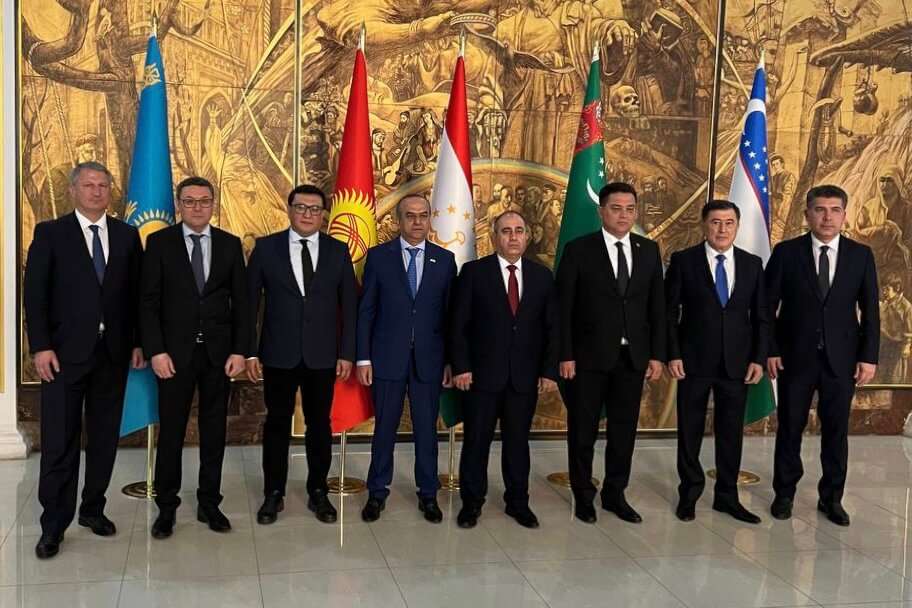The head of the Kazakhstan Institute for Strategic Studies under the President of the Republic of Kazakhstan Yerkin Tukumov took part in the International Scientific and Practical Conference on «Tajikistan and Central Asia: the policy of good neighborliness, mutual assistance, eternal friendship and joint development», held in Dushanbe on March 10, 2023.
The event was organized by the Center for Strategic Studies under the President of the Republic of Tajikistan (hereinafter – the CSS) with the support of the Regional Representative Office of the Konrad Adenauer Foundation on Central Asia.
Opening the conference, the director of the CSS Khayriddin Usmonzoda invited the guests to the discussion with the words: «There are more points of contact in Central Asia than there are discrepancies. The countries of the region not only demonstrate their commitment to cooperation, but also contribute to ensuring global security. Thus, the Central Asian states amicably supported Tajikistan’s initiative to declare 2025 the Year of Glacier Protection. »
«This international conference opens a series of events on the eve of the jubilee fifth Consultative Meeting of the Heads of state of the Central Asian countries and is of great importance in the context of the knowledge–intensive political practice, which is expressed in the analytical support of the political decision-making process, » – Deputy Minister of Foreign Affairs of the Republic of Tajikistan Sodik Imomi said in his welcoming speech.
Speaking at a plenary session with the participation of heads of Strategic Research Centers of all countries of the region, Director of KazISS Yerkin Tukumov highly appreciated Kazakh-Tajik relations: «It is no coincidence that Kazakhstan is the largest trade and economic partner of Tajikistan in the region. By the end of 2022, our trade turnover amounted to $ 1.5 billion, and there is great potential for further development in various areas of bilateral relations. »
Speaking about promising areas of joint development, Y. Tukumov said: «Central Asia can become one of the world’s largest production sites. Our countries have huge potential: mineral resources, various sources of energy – from oil and uranium to the sun, wind and water, extensive agricultural land and good human capital. »
In the context of global food threats, the head of the KazISS noted: «Central Asia could become a food hub on the continent. Kazakhstan is called the «bread basket of Central Asia» or the breadbasket of the region. In addition to grain and flour, our country is historically and naturally adapted to animal husbandry. In other countries of the region, the traditions of oasis farming are developed, cotton and rice are grown on a global scale. I think in the future it is necessary to work out the issue of creating a Central Asian food consortium. »
Expressing full support for the idea of his Central Asian colleagues to create an economic corridor to South Asia, Yerkin Tukumov noted that «the realization of transit potential can become one of the main non-resource drivers of the development of the countries of the Central Asian region, as well as the locomotive of industrial and technological modernization of economies. In Kazakhstan, the share of revenue from logistics reaches 30% in the structure of the service sector. Let’s imagine what indicators we can achieve if we join forces and strengthen the direct transportation of goods and raw materials by value chains. »
In conclusion, the head of the Kazakhstan Institute summed up: «I would like to note that the participation of the region in transit transportation and international projects with a wide range of investors will increase the interest of global players in the territorial integrity, stability of Central Asian countries, increasing security from external threats. »


